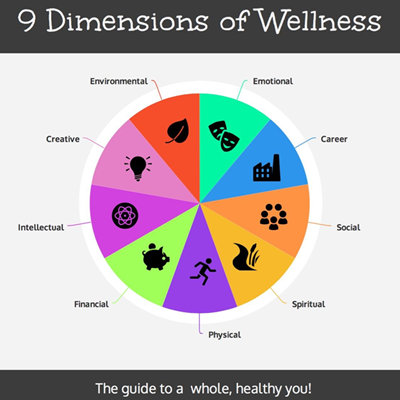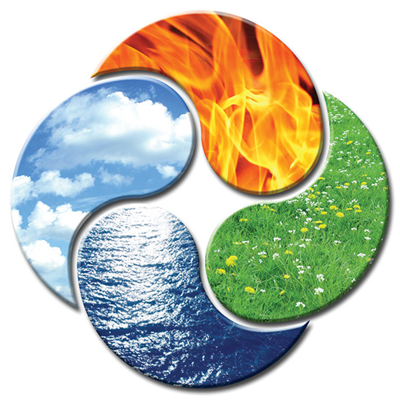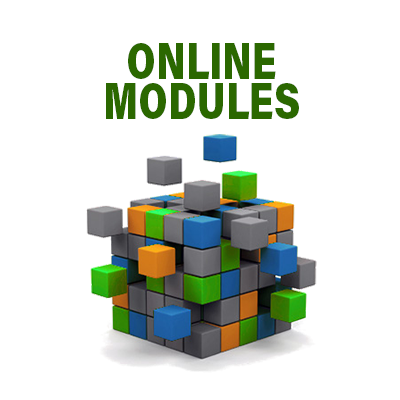Resources


Wellness - Ora
Wellness is the act of practicing healthy habits on a daily basis to attain better physical and mental health outcomes, so that instead of just surviving, you're thriving.
Wellness matters because everything we do and every emotion we feel, relates to our well-being.
In turn, our well-being directly affects our actions and emotions. Therefore, it is important for everyone to achieve optimal wellness in order to subdue stress, reduce the risk of illness and ensure positive interactions.

Wellness - Physical
Emotional wellness is the ability to successfully handle life's stresses and adapt to change and difficult times. Having the ability to talk with someone about your emotional concerns and share your feelings with others.

Indicators
that you have balanced emotional wellness are:
Saying
"no" when you need to without feeling guilty.
Feeling
content most of the time.
Feeling
you have a strong support network i.e. people in your life that care about you.
Being
able to relax
Wellness - Intellectual
Intellectual
Wellness is being open to new ideas, thinking critically and finding ways to be
creative. The development of good study skills, time management and the ability
to challenge yourself to see all sides of an issue
Indicators
of strong intellectual wellness are:
Becoming
a critical thinker
Development
of your own ideas, views, and opinions
Exposing
yourself to new ideas, people, and beliefs that are different from your own
Become
aware of who you are and what you value

Wellness - Social
The reason why social wellness is so important is that people who have healthy relationships, and a strong social network tend to live longer and respond better to stress. This reduction in stress and anxiety results in a healthier endocrine system, healthier cardiovascular functioning and an enhanced immune system

Indicators of strong social wellness are:
Development of assertiveness skills not passive or aggressive ones. Balancing social and personal time.
The ability to be who you are, in all situations.
Becoming engaged with other people in your community.
Valuing diversity and treat others with respect.
Wellness - Spiritual
Spiritual wellness is being connected to something greater than yourself and having a set of values, principles, morals and beliefs that provide a sense of purpose and meaning to life, then using those principles to guide your actions.

Spiritual
wellness provides us with systems of faith, beliefs, values, ethics, principles
and morals.
A
healthy spiritual practice may include: examples of volunteerism, social
contributions, belonging to a group, fellowship, optimism, forgiveness and
expressions of compassion.
Wellness - Financial
Why
is financial wellness important? Financial wellness is critical for all people
because it can help lower your stress levels. Stress related to money can
affect every aspect of your life. Your personal and professional productivity
could potentially suffer due to financial worry.
How
to create financial wellness:
Spend
less than you earn. Bolster your savings and reduce your expenses.
Save
for future spending. Get yourself into a habit of saving
Only
borrow what you can afford.
Grow
your money.
Boost
your earning capacity.

Wellness - Environmental
Environmental wellness is a process that involves learning about and contributing to the health of the planet. It involves establishing a sustainable lifestyle, protecting natural resources, and eliminating pollutants and excessive waste.
Environmental wellness inspires us to live a lifestyle that is respectful of our surroundings.
This realm encourages us to live in harmony with the Earth by taking action to protect it. Environmental well-being promotes interaction with nature and your personal environment.

Wellness - Occupational
Occupational
wellness represents the feeling of purpose and productivity in one's chosen
profession. This is certainly a key element to what is referred to as work-life
balance, an enriched and productive professional life is certainly required to
mesh with a healthy personal life.
Occupational
Wellness means:
Engaging
in motivating and interesting work.
Understanding
how to balance your work with leisure time.
Working
in a way that fits into your personal learning style.
Communicating
and collaborating with others.
Working
independently and with others.
Feeling
inspired and challenged at work.

Wellness – Creative
Creativity has long been thought of as a key piece of the wellness puzzle. A review of more than 100 studies of the benefits of the arts (music, visual arts, dance, and writing) found that creative expression has a powerful impact on health. Most of the studies agree that engagement in the arts decreases depressive symptoms, increases positive emotions, reduces stress, and, in some cases, improves immune system functioning. Art, music, dance, writing, and drama are considered the traditional healing arts, but you can seek out dozens of creative pursuits as part of a wellness plan to help you lower stress, cope with a loss, form new connections, and simply be happier. Creativity and the flexibility to engage this are crucial in the Hospitality Industry.






